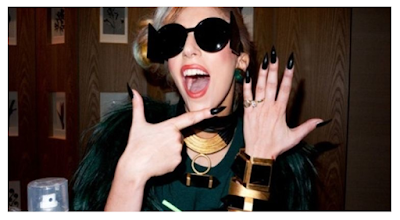 |
| Miley Cyrus on Marie Claire cover, Sept. 2015 |
Boobs are great. They boast the rare combination of being both
powerful and innocent. They’re sexy yet maternal. They’re as unique as the
personalities to which they’re connected. They’re a beautiful factor that both
unifies and diversifies women and, quite frankly, they’re something we should
be proud of. We should embrace our breasts as we should embrace our entire
physical beings. The alternative, of course, is self-hate and insecurity.
And yet…
Many of you will laugh, gape in disgust or shake your heads
in disbelief as you read my declarative appreciation of my tits, her tits – our
tits. For some strange reason, our culture has become uncomfortable with
breasts, choosing to hide and shame rather than glorify them – or talk about
them at all.
While I’ve long thought this is an issue, and that the
inequality regarding male vs. female toplessness is skewed, it’s Miley Cyrus
that really got me thinking this week. (Please don’t let that stop you from reading
on.)
In a recent interview for September
2015’s issue of Marie Claire, Cyrus took a jab at Taylor Swift’s
VMA-nominated “Bad Blood” video. Specifically, she noted the guns and violence,
which create the video’s overall theme of fiery revenge. And while many will
write off Cyrus’ comments simply because she’s the one who said them, there is
actually great validity in the point being made:
"I don't get the violence revenge thing," said Cyrus,
22. "That's supposed to be a good example? And I'm a bad role model
because I'm running around with my [breasts] out? I'm not sure how [breasts]
are worse than guns."
If you remember, Cyrus released “Wrecking Ball” in 2013 –
the video for which features a naked Cyrus riding a swinging wrecking ball,
crying and singing in heartfelt fashion. She was shamed for it. People laughed
at it. The video was tagged “weird,” “bizarre” and “inappropriate.”
It’s true that the means in which Cyrus and Swift carry
themselves in everyday life (or at least as far as we know) helps to create
merit for one and disrespect for the other. I – like many – found Cyrus’s
twerking-fest with Robin Thicke (for example) to be both stupid and gag-inducing.
I associate her with oftentimes reckless and immature behavior. But that
doesn’t mean Cyrus doesn’t have a point here.
Our culture has become numb to the violence – both with and
without guns – that appears in our fictional outlets. Guns are everywhere. Many
of us didn’t bat an eye at the violence featured in Swift’s recent music video.
Not to mention, television characters are violently injured or killed all the
time. We’ve become accustomed to it and even flock to watch movies and shows in
which we know we’ll see fighting, war or just a regular daily dose of gun
violence. There’s not even acknowledgment – let alone mourning – for many
characters slain in the scenes that play before us. Consider robberies, battle
scenes, invasions. These are all normal at this point.
On the contrary, boobs are censored on most televised
channels. Cyrus was criticized immensely for the nudity in her video and, to be
honest, I get a little uncomfortable when topless women appear on screen when
say, I don’t know, I’m watching TV with my father. But why? Why have we come to
regard boobs as inappropriate and worth hiding, while we give little thought to
guns and general violence?
Cyrus is right. Our thinking is backwards.
I’m not saying that I encourage women to run around without
tops on (not that it would hurt anyone if they did). What I am saying, however,
is that a woman without a top should not be the more shameful of the two things
– should not be the one dubbed inappropriate. Boobs are natural and innocent.
Guns are used for hurting and killing. And we embrace the latter as a piece of
our culture? And shamefully hide the former?
Let’s consider the two things translated into real life
circumstances: would we rather come across guns in action? Those fights we so
readily accept on television, in music videos and in games – would we like to
see those in the flesh? Or would we rather have an encounter with a topless
woman? Which, I ask, is the more inappropriate? More offensive? Which one is worse?
Let’s forget how we’ve thought about boobs up until this
point. Let’s forget that – for whatever reason – people have decided to craft a taboo against a
woman’s bare chest. Let’s put our thinking into perspective here and realize
that, if we’re going to embrace one of these two things (boobs or guns) that
the safe and logical choice is the one we haven’t been making all this time.
Let’s admit that Cyrus has a valid point and accept boobs over guns forever
more.


